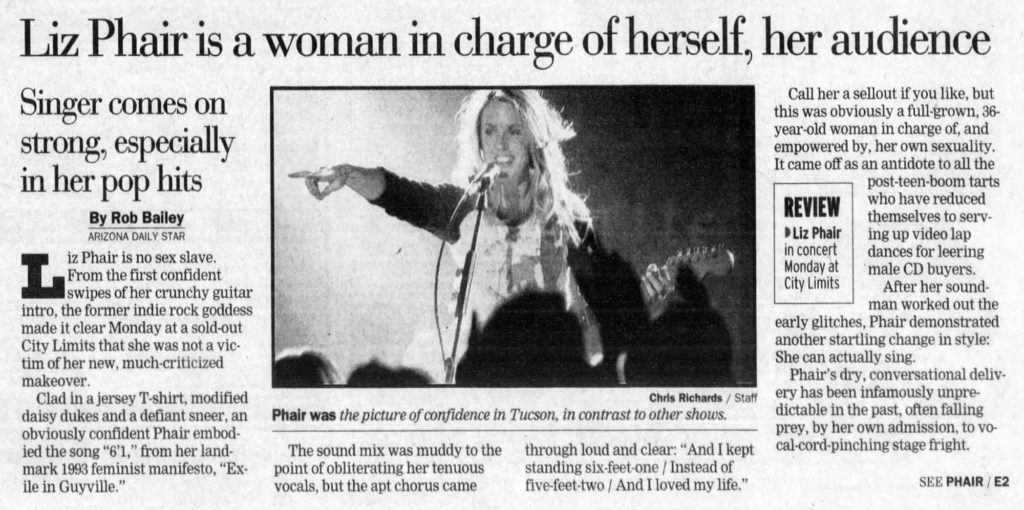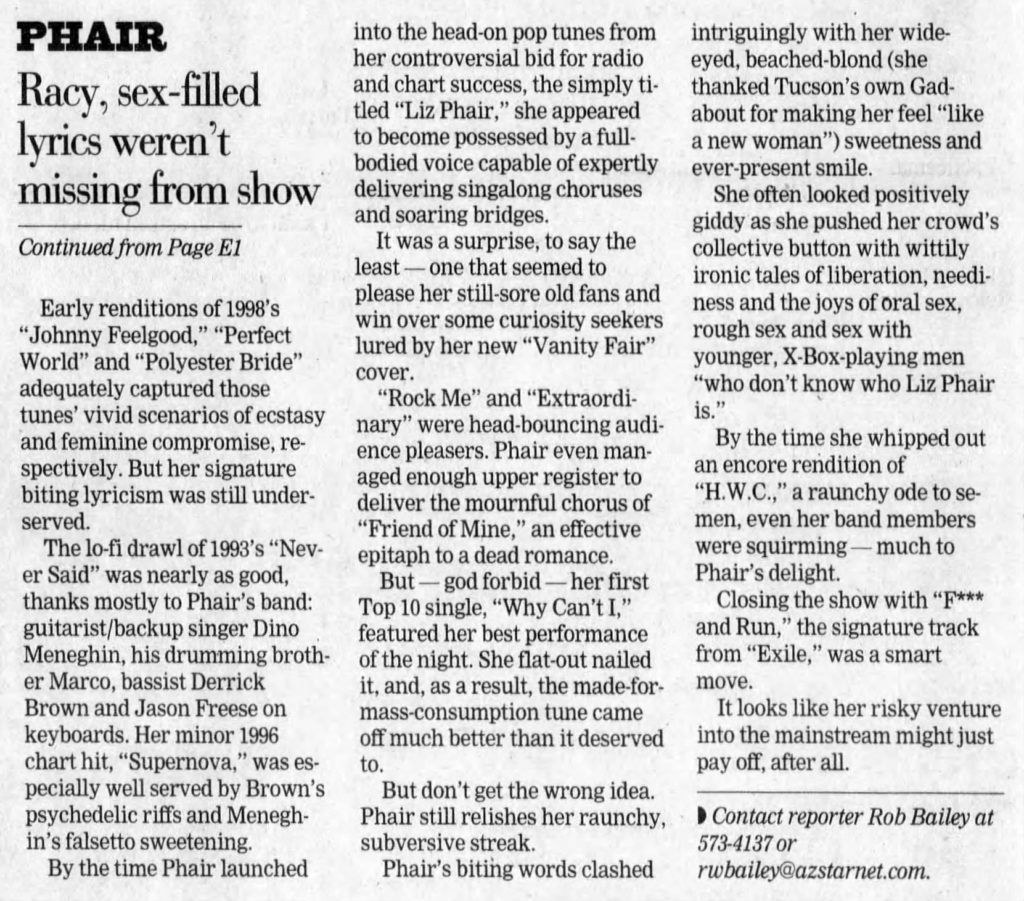By Rob Bailey
The Arizona Daily Star, November 5, 2003
Liz Phair is no sex slave. From the first confident swipes of her crunchy guitar intro, the former indie rock goddess made it clear Monday at a sold-out City Limits that she was not a victim of new, much-criticized makeover.
Clad in a jersey T-shirt, modified daisy dukes and a defiant sneer, an obviously confident Phair embodied the song “6’1,” from her landmark 1993 feminist manifesto, “Exile in Guyville.”
The sound mix was muddy to the point of obliterating her tenuous vocals, but the apt chorus came through loud and clear: “And I kept standing six-feet-one / Instead of five-feet- two / And I loved my life.”
Call her a sellout if you like, but this was obviously a full-grown, 36-year-old woman in charge of, and empowered by, her own sexuality. It came off an as antidote to all the post-teen boom tarts who have reduced themselves to severing up video lap dances for leering male CD buyers.
After her soundman worked out the early glitches, Phair demonstrated another startling change in style: She can actually sing.
Phair’s dry, conversational delivery has been infamously unpredictable in the past, often falling prey, by her own admission, to vocal-cord-pinching stage fright.
Early renditions of 1998’s “Johnny Feelgood,” “Perfect World” and “Polyester Bride” adequately captured those tunes’ vivid scenarios of ecstasy and feminine compromise, respectively. But her signature biting lyricism was still underserved.
The lo-fi drawl of 1993’s “Never Said” was nearly as good, thanks mostly to Phair’s band: guitarist/backup singer Dino Meneghin, his drumming brother Marco, bassist Derrick Brown and Jason Freese on keyboards. Her minor 1996 chart hit, “Supernova,” was especially well served by Brown’s psychedelic riffs and Meneghin’s falsetto sweetening.
But the time Phair launched into the head-on pop tunes from her controversial bid for radio and chart success, the simply titled “Liz Phair,” she appeared to be come possessed by a full-bodied voice capable of expertly delivering singalong choruses and soaring bridges.
It was a surprise, to say the least—one that seemed to please her still-sore old fans and win over curiosity seekers lured by her new “Vanity Fair” cover.
“Rock Me” and “Extraordinary” were head-bouncing audience pleasers. Phair even managed enough upper register to delver the mournful chorus of “Friend of Mine,” an effective epitaph to a dead romance.
But—god forbid— her first Top 10 single, “Why Can’t I,” featured her best performance of the night. She flat-out nailed it, and, as a result, the made-for-mass-consumption tune came off much better than it deserved to.
But don’t get the wrong idea. Phair still relishes her raunchy, subversive streak.
Phair’s biting words clashed intriguingly with her wide-eyed, beached-blond (she thanks Tucson’s own Gadabout for making her feel “like a new woman”) sweetness and ever-present smile.
She often looked positively giddy as she pushed her crowd’s collective button with wittily ironic tales of liberation, neediness and the joys of oral sex, rough sex and sex with younger, X-Box-playing men “who don’t know who Liz Phair is.”
By the time she whipped out an encore rendition of “H.W.C.,” a raunchy ode to semen, even her band members were squirming—much to Phair’s delight.
Closing the show with “F*** and Run,” the signature track from “Exile,” was a smart move.
It looks like her risky venture into the mainsteam might just pay off, after all.







